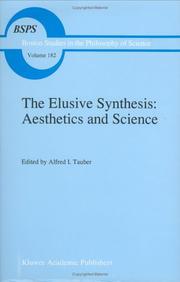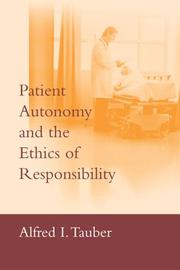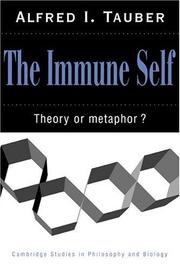| Listing 1 - 10 of 22 | << page >> |
Sort by
|
Book
ISBN: 0691145512 0691145520 9780691145518 9780691145525 9786612936531 1400836921 1282936530 9781400836925 9781282936539 6612936533 Year: 2010 Publisher: Princeton, NJ
Abstract | Keywords | Export | Availability | Bookmark
 Loading...
Loading...Choose an application
- Reference Manager
- EndNote
- RefWorks (Direct export to RefWorks)
Freud began university intending to study both medicine and philosophy. But he was ambivalent about philosophy, regarding it as metaphysical, too limited to the conscious mind, and ignorant of empirical knowledge. Yet his private correspondence and his writings on culture and history reveal that he never forsook his original philosophical ambitions. Indeed, while Freud remained firmly committed to positivist ideals, his thought was permeated with other aspects of German philosophy. Placed in dialogue with his intellectual contemporaries, Freud appears as a reluctant philosopher who failed to recognize his own metaphysical commitments, thereby crippling the defense of his theory and misrepresenting his true achievement. Recasting Freud as an inspired humanist and reconceiving psychoanalysis as a form of moral inquiry, Alfred Tauber argues that Freudianism still offers a rich approach to self-inquiry, one that reaffirms the enduring task of philosophy and many of the abiding ethical values of Western civilization.
Philosophy. --- Psychoanalysis and philosophy. --- Psychoanalysis. --- Freud, Sigmund, --- Psychoanalysis and philosophy --- Philosophy --- Freud, Sigmund --- Psychanalyse et philosophie --- Philosophy and psychoanalysis --- Psychodynamic Analysis --- Analyses, Psychodynamic --- Analysis, Psychodynamic --- Psychodynamic Analyses --- Pharmacy Philosophy --- Philosophical Overview --- Hedonism --- Stoicism --- Overview, Philosophical --- Overviews, Philosophical --- Pharmacy Philosophies --- Philosophical Overviews --- Philosophies --- Philosophies, Pharmacy --- Philosophy, Pharmacy --- Psychology --- Psychology, Pathological --- Mental philosophy --- Humanities --- Freud, Sigmund, - 1856-1939 - Philosophy --- Freud, Sigmund, - 1856-1939

ISBN: 079231185X 9401134065 Year: 1991 Publisher: Dordrecht Kluwer
Abstract | Keywords | Export | Availability | Bookmark
 Loading...
Loading...Choose an application
- Reference Manager
- EndNote
- RefWorks (Direct export to RefWorks)
Theory of knowledge --- Evolution --- -Immunology --- -Philosophy and science --- -Self (Philosophy) --- -Science and philosophy --- Science --- Immunobiology --- Life sciences --- Serology --- Philosophy --- Creation --- Emergence (Philosophy) --- Teleology --- Congresses --- Immunology --- Philosophy and science --- Self (Philosophy) --- Congresses. --- -Congresses

ISBN: 0792339045 9780792339045 Year: 1996 Volume: 182 Publisher: Dordrecht Boston Kluwer
Abstract | Keywords | Export | Availability | Bookmark
 Loading...
Loading...Choose an application
- Reference Manager
- EndNote
- RefWorks (Direct export to RefWorks)
Art and science --- Art et mathématiques --- Art et science --- Art et sciences --- Kunst en wetenschap --- Mathématiques et art --- Science and art --- Science et art --- Sciences et art --- Wetenschap en kunst --- Science --- Art and science. --- Aesthetics. --- -Natural science --- Science of science --- Sciences --- Aesthetics --- -Aesthetics --- Science - Aesthetics.

ISBN: 0520937333 1597346497 9780520937338 0585394709 9780585394701 9781597346498 0520225279 9780520225275 Year: 2001 Publisher: Berkeley : University of California Press,
Abstract | Keywords | Export | Availability | Bookmark
 Loading...
Loading...Choose an application
- Reference Manager
- EndNote
- RefWorks (Direct export to RefWorks)
In his graceful philosophical account, Alfred I. Tauber shows why Thoreau still seems so relevant today--more relevant in many respects than he seemed to his contemporaries. Although Thoreau has been skillfully and thoroughly examined as a writer, naturalist, mystic, historian, social thinker, Transcendentalist, and lifelong student, we may find in Tauber's portrait of Thoreau the moralist a characterization that binds all these aspects of his career together.
Knowledge, Theory of, in literature. --- Positivism. --- Romanticism. --- Romanticism - United States. --- Thoreau, Henry David,-- 1817-1862-- Philosophy. --- Knowledge, Theory of, in literature --- Romanticism --- Positivism --- American Literature --- English --- Languages & Literatures --- Pseudo-romanticism --- Romanticism in literature --- Humanity, Religion of --- Religion of humanity --- Aesthetics --- Fiction --- Literary movements --- Agnosticism --- Deism --- Philosophy --- Philosophy, Modern --- Rationalism --- Religion --- Religions --- Realism --- Théorie de la connaissance en littérature --- Romantisme --- Positivisme --- Thoreau, Henry David, --- Philosophy. --- Ethics. --- Thoreau, Henry David --- Thoreau, Henry D. --- Toro, Genri Devid, --- Thoreau, Henry, --- Toro, Henri Dejvid, --- Thorō, Enry Deēvint, --- So-lo, --- Toro, Henri Daṿid, --- Thoreau, David Henry, --- Sorō, Henrī Deividdo, --- טהארא, הענרי דייוויד --- טהארא, הענרי דײװיד --- תורו, הנרי דוד --- תורו, הנרי דוד, --- 梭罗, --- ソロー ヘンリー・デイヴィッド,

ISBN: 0262201607 026270112X 9780262701129 9780262201605 Year: 2005 Publisher: Cambridge MIT press
Abstract | Keywords | Export | Availability | Bookmark
 Loading...
Loading...Choose an application
- Reference Manager
- EndNote
- RefWorks (Direct export to RefWorks)
A philosophical discussion of the doctor-patient relationship that argues for enhanced patient antonomy based on the ethics of physician responsibility and a science of value-based decision making. The principle of patient autonomy dominates the contemporary debate over medical ethics. In this examination of the doctor-patient relationship, physician and philosopher Alfred Tauber argues that the idea of patient autonomy - which was inspired by other rights-based movements of the 1960s - was an extrapolation from political and social philosophy that fails to ground medicine's moral philosophy. He proposes instead a reconfiguration of personal autonomy and a renewed commitment to an ethics of care. In this formulation, physician beneficence and responsibility become powerful means for supporting the autonomy and dignity of patients. Beneficence, Tauber argues, should not be confused with the medical paternalism that fuelled the patient rights movement. Rather, beneficence and responsibility are moral principles that not only are compatible with patient autonomy but strengthen it.
autonomie van de patiënt --- arts-patiëntrelatie --- autonomie du patient --- relation médecin-patient --- Patient participation --- Physician and patient --- Medical ethics --- Autonomy (Philosophy) --- Patient Care --- Patient Rights --- Ethics, Clinical --- Patient Participation --- Personal Autonomy --- Physician-Patient Relations --- Moral and ethical aspects --- ethics --- Doctor and patient --- Doctor-patient relationships --- Patient and doctor --- Patient and physician --- Patient-doctor relationships --- Patient-physician relationships --- Patients and doctors --- Patients and physicians --- Physician-patient relationships --- Physicians and patients --- Interpersonal relations --- Fear of doctors --- Narrative medicine --- Medical cooperation --- Participation --- Therapist and patient --- Philosophy --- Patient participation - United States --- Physician and patient - Moral and ethical aspects - United States --- Medical ethics - United States --- Patient Care - ethics --- Patient Rights - ethics --- Physician-Patient Relations - ethics

ISBN: 0262700727 0262201143 0585003440 0262284693 9780262201148 9780262700726 9780262284691 9780585003443 Year: 1999 Publisher: Cambridge, Mass. MIT Press
Abstract | Keywords | Export | Availability | Bookmark
 Loading...
Loading...Choose an application
- Reference Manager
- EndNote
- RefWorks (Direct export to RefWorks)
A physician/philosopher uses anecdotes, historical narrative, and philosophical concepts to draw a moral portrait of the doctor-patient relationship."My mission is to analyze medicines ethical structure. I do so as both a physician and a philosopher. Of my two voices, it is the latter that is informed by the former ... As a physician I have sought professional solutions to the frustrations of fighting a medical system that has become increasingly hostile to my standards of care for my patients; as a philosopher I will explore here the ethical issues I believe are the root of our predicament."--The introduction. In Confessions of a Medicine Man, Alfred Tauber probes the ethical structure of contemporary medicine in an argument accessible to lay readers, healthcare professionals, and ethicists alike. Through personal anecdote, historical narrative, and philosophical discussion, Tauber composes a moral portrait of the doctor-patient relationship. In a time when discussion has focused on market forces, he seeks to show how our basic conceptions of health, the body, and most fundamentally our very notion of selfhood frame our experience of illness. Arguing against an ethics based on a presumed autonomy, Tauber presents a relational ethic that must orient medical science and a voracious industry back to their primary moral responsibility: the empathetic response to the call of the ill.
Professional ethics. Deontology --- Philosophy --- Medical ethics --- Medicine --- Physician and patient --- Science --- Patient Care Management --- Ethics, Clinical --- Health Personnel --- Personality Development --- Thinking --- Professional-Patient Relations --- Technology --- Principle-Based Ethics --- Health Care Economics and Organizations --- Health Care Quality, Access, and Evaluation --- Health Services Accessibility --- Human Rights --- Education, Professional --- Professional Role --- Social Sciences --- Health Planning --- Humanities --- Psychological Phenomena and Processes --- Social Control, Formal --- Health Occupations --- Health Care --- Sociology --- Personality --- Education --- Mental Processes --- Role --- Technology, Industry, and Agriculture --- Ethics --- Ethics, Professional --- Natural Science Disciplines --- Interpersonal Relations --- Occupational Groups --- Health Care Facilities, Manpower, and Services --- Health Services Administration --- Anthropology, Education, Sociology and Social Phenomena --- Disciplines and Occupations --- Psychiatry and Psychology --- Technology, Industry, Agriculture --- Persons --- Group Processes --- Behavior and Behavior Mechanisms --- Psychology, Social --- Named Groups --- Personal Autonomy --- Patient Advocacy --- Research --- Economics --- Freedom --- Philosophy, Medical --- Delivery of Health Care --- Decision Making --- Physician-Patient Relations --- Ethics, Medical --- Resource Allocation --- Education, Medical --- Physician's Role --- Health Care Rationing --- Biomedical Technology --- Physicians --- Self Concept --- Biomedical Research --- Postmodernism --- Health & Biological Sciences --- Medical Ethics & Philosophy --- Physicians' Role --- Physician Role --- Physician's Roles --- Physicians Role --- Physicians' Roles --- Role, Physician's --- Role, Physicians' --- Roles, Physician's --- Roles, Physicians' --- Medical Education --- Physicians, Women --- Students, Medical --- Allocation of Resources --- Allocative Efficiency --- Allocation, Resource --- Allocations, Resource --- Efficiency, Allocative --- Resource Allocations --- Resources Allocation --- Medical Ethics --- Professionalism --- Bioethics --- Doctor Patient Relations --- Physician Patient Relations --- Physician Patient Relationship --- Doctor-Patient Relations --- Doctor Patient Relation --- Doctor-Patient Relation --- Physician Patient Relation --- Physician Patient Relationships --- Physician-Patient Relation --- Relation, Doctor Patient --- Relation, Doctor-Patient --- Relation, Physician Patient --- Relation, Physician-Patient --- Relations, Doctor Patient --- Relations, Doctor-Patient --- Relations, Physician Patient --- Relations, Physician-Patient --- Relationship, Physician Patient --- Relationships, Physician Patient --- Experimental Medicine --- Investigational Medicine --- Investigative Medicine --- Research, Biomedical --- Research, Medical --- Medical Research --- Medicine, Experimental --- Medicine, Investigational --- Medicine, Investigative --- Animals, Laboratory --- Self-Perception --- Self Esteem --- Self Perception --- Concept, Self --- Concepts, Self --- Esteem, Self --- Esteems, Self --- Perception, Self --- Perceptions, Self --- Self Concepts --- Self Esteems --- Self Perceptions --- Self-Perceptions --- Physician --- Biomedical Technologies --- Technology, Biomedical --- Technology, Health --- Technology, Health Care --- Health Care Technology --- Health Technology --- Biomedical Engineering --- Medical Informatics --- Pharmacy Philosophy --- Philosophical Overview --- Hedonism --- Stoicism --- Overview, Philosophical --- Overviews, Philosophical --- Pharmacy Philosophies --- Philosophical Overviews --- Philosophies --- Philosophies, Pharmacy --- Philosophy, Pharmacy --- Healthcare Rationing --- Rationing, Health Care --- Rationing, Healthcare --- Health Resources --- Patient Selection --- Decision Making, Shared --- Decision Makings, Shared --- Making, Shared Decision --- Makings, Shared Decision --- Shared Decision Making --- Shared Decision Makings --- Problem Solving --- Community-Based Distribution --- Contraceptive Distribution --- Delivery of Healthcare --- Dental Care Delivery --- Distribution, Non-Clinical --- Distribution, Nonclinical --- Distributional Activities --- Healthcare --- Healthcare Delivery --- Healthcare Systems --- Non-Clinical Distribution --- Nonclinical Distribution --- Delivery of Dental Care --- Health Care Delivery --- Health Care Systems --- Activities, Distributional --- Activity, Distributional --- Care, Health --- Community Based Distribution --- Community-Based Distributions --- Contraceptive Distributions --- Deliveries, Healthcare --- Delivery, Dental Care --- Delivery, Health Care --- Delivery, Healthcare --- Distribution, Community-Based --- Distribution, Contraceptive --- Distribution, Non Clinical --- Distributional Activity --- Distributions, Community-Based --- Distributions, Contraceptive --- Distributions, Non-Clinical --- Distributions, Nonclinical --- Health Care System --- Healthcare Deliveries --- Healthcare System --- Non Clinical Distribution --- Non-Clinical Distributions --- Nonclinical Distributions --- System, Health Care --- System, Healthcare --- Systems, Health Care --- Systems, Healthcare --- Medical Philosophy --- Libertarianism --- Liberty --- Freedoms --- Capital --- Conditions, Economic --- Consumption --- Cost of Living --- Easterlin Hypothesis --- Economic Conditions --- Economic Factors --- Economic Policies --- Economic Policy --- Economics, Home --- Factors, Economic --- Home Economics --- Household Consumption --- Macroeconomic Factors --- Microeconomic Factors --- Policies, Economic --- Policy, Economic --- Production --- Remittances --- Utility Theory --- Consumer Price Index --- Condition, Economic --- Consumer Price Indices --- Consumption, Household --- Economic Condition --- Economic Factor --- Factor, Economic --- Factor, Macroeconomic --- Factor, Microeconomic --- Factors, Macroeconomic --- Factors, Microeconomic --- Household Consumptions --- Hypothesis, Easterlin --- Index, Consumer Price --- Indices, Consumer Price --- Living Cost --- Living Costs --- Remittance --- Theories, Utility --- Theory, Utility --- Utility Theories --- Laboratory Research --- Research Activities --- Research and Development --- Research Priorities --- Activities, Research --- Activity, Research --- Development and Research --- Priorities, Research --- Priority, Research --- Research Activity --- Research Priority --- Research, Laboratory --- Ethics, Research --- Clinical Ombudsman --- Patient Ombudsman --- Patient Ombudsmen --- Patient Representatives --- Advocacy, Patient --- Ombudsman, Clinical --- Ombudsman, Patient --- Ombudsmen, Patient --- Patient Representative --- Representative, Patient --- Representatives, Patient --- Commitment of Mentally Ill --- Patient Rights --- Medical Specialities --- Medical Specialties --- Medical Specialty --- Specialities, Medical --- Specialties, Medical --- Specialty, Medical --- Medical Speciality --- Speciality, Medical --- Health Workforce --- Free Will --- Self Determination --- Autonomy, Personal --- Professional Autonomy --- Paternalism --- Social Psychology --- Psychologies, Social --- Social Psychologies --- Group Meetings --- Group Process --- Group Thinking --- Group Meeting --- Group Thinkings --- Meeting, Group --- Meetings, Group --- Process, Group --- Processes, Group --- Thinking, Group --- Thinkings, Group --- Person --- Administration, Health Services --- Health Services --- Healthcare Facilities, Manpower, and Services --- Group, Occupational --- Groups, Occupational --- Occupational Group --- Occupations --- Gender Issues --- Husband-Wife Communication --- Partner Communication --- Relations, Gender --- Gender Relations --- Social Interaction --- Communication, Husband-Wife --- Communication, Partner --- Communications, Husband-Wife --- Communications, Partner --- Gender Issue --- Gender Relation --- Husband Wife Communication --- Husband-Wife Communications --- Interaction, Social --- Interactions, Social --- Interpersonal Relation --- Issue, Gender --- Issues, Gender --- Partner Communications --- Relation, Gender --- Relation, Interpersonal --- Relations, Interpersonal --- Social Interactions --- Friends --- Emotional Intelligence --- Natural Sciences --- Physical Sciences --- Discipline, Natural Science --- Disciplines, Natural Science --- Natural Science --- Natural Science Discipline --- Physical Science --- Science, Natural --- Science, Physical --- Sciences, Natural --- Sciences, Physical --- Professional Ethics --- Ethic, Professional --- Professional Ethic --- Professional Misconduct --- Egoism --- Ethical Issues --- Metaethics --- Moral Policy --- Natural Law --- Situational Ethics --- Ethical Issue --- Ethics, Situational --- Issue, Ethical --- Issues, Ethical --- Law, Natural --- Laws, Natural --- Moral Policies --- Natural Laws --- Policies, Moral --- Policy, Moral --- Censorship, Research --- Role Concept --- Concept, Role --- Concepts, Role --- Role Concepts --- Roles --- Human Information Processing --- Information Processing, Human --- Activities, Educational --- Educational Activities --- Workshops --- Literacy Programs --- Training Programs --- Activity, Educational --- Educational Activity --- Literacy Program --- Program, Literacy --- Program, Training --- Programs, Literacy --- Programs, Training --- Training Program --- Workshop --- Students --- Personalities --- Human Characteristics --- General Social Development and Population --- Health Professions --- Health Occupation --- Health Profession --- Profession, Health --- Professions, Health --- Regulation --- Social Control --- Control, Social --- Controls, Social --- Formal Social Control --- Formal Social Controls --- Regulations --- Social Controls --- Public Policy --- Psychologic Processes --- Psychologic Processes and Principles --- Psychological Processes --- Phenomena, Psychological --- Processes, Psychologic --- Processes, Psychological --- Psychological Phenomenas --- Psychological Processe --- PL93-641 --- Public Law 93-641 --- Health and Welfare Planning --- National Health Planning and Resources Development Act of 1974 --- Planning, Health and Welfare --- State Health Planning, United States --- Planning, Health --- Public Law 93 641 --- Planning Techniques --- Science, Social --- Sciences, Social --- Social Science --- Professional Roles --- Role, Professional --- Roles, Professional --- Professional Education --- Equal Rights --- Equal Right --- Human Right --- Right, Equal --- Right, Human --- Rights, Equal --- Rights, Human --- Social Justice --- Human Rights Abuses --- Accessibility, Health Services --- Contraceptive Availability --- Health Services Geographic Accessibility --- Program Accessibility --- Access to Health Care --- Accessibility of Health Services --- Availability of Health Services --- Accessibility, Program --- Availability, Contraceptive --- Health Services Availability --- Medically Underserved Area --- Healthcare Quality, Access, and Evaluation --- Healthcare Economics and Organizations --- Principlism --- Ethic, Principle-Based --- Ethics, Principle-Based --- Principle Based Ethics --- Principle-Based Ethic --- Ethical Theory --- Arts, Industrial --- Industrial Arts --- Cloud Computing --- Contacting Clients --- Pharmacist-Patient Relations --- Professional Patient Relationship --- Client, Contacting --- Clients, Contacting --- Contacting Client --- Pharmacist Patient Relations --- Pharmacist-Patient Relation --- Professional Patient Relations --- Professional Patient Relationships --- Professional-Patient Relation --- Relation, Pharmacist-Patient --- Relation, Professional-Patient --- Relations, Pharmacist-Patient --- Relations, Professional-Patient --- Relationship, Professional Patient --- Relationships, Professional Patient --- Truth Disclosure --- Teach-Back Communication --- Critical Thinking --- Thinking Skills --- Thought --- Thinking Skill --- Thinking, Critical --- Thoughts --- Development, Personality --- Child Development --- Growth --- Healthcare Providers --- Healthcare Workers --- Health Care Providers --- Health Care Provider --- Healthcare Provider --- Healthcare Worker --- Personnel, Health --- Provider, Health Care --- Provider, Healthcare --- Providers, Health Care --- Providers, Healthcare --- Clinical Ethics --- Clinical Medicine --- Ethicists --- Ethics Committees, Clinical --- Ethics Consultation --- Care Management, Patient --- Management, Patient Care --- Sciences --- Doctor and patient --- Doctor-patient relationships --- Patient and doctor --- Patient and physician --- Patient-doctor relationships --- Patient-physician relationships --- Patients and doctors --- Patients and physicians --- Physician-patient relationships --- Physicians and patients --- Interpersonal relations --- Fear of doctors --- Narrative medicine --- Biomedical ethics --- Clinical ethics --- Health care ethics --- Medical care --- Professional ethics --- Nursing ethics --- Social medicine --- Moral and ethical aspects --- education --- ethics --- organization & administration --- Self Confidence --- Confidence, Self --- Psychology, Perceptual --- Perceptual Psychology --- Medical ethics. --- Philosophy. --- Moral and ethical aspects. --- Citizen Science --- Freedom of Religion --- Religious Freedom --- Right to Movement --- Freedom, Religious --- Freedoms, Religious --- Movement, Right to --- Movements, Right to --- Religion Freedom --- Religion Freedoms --- Religious Freedoms --- Right to Movements --- to Movement, Right --- to Movements, Right --- Employee --- Employees --- Personnel --- Worker --- Workers --- Collective Human Rights --- Linguistic Rights --- Right to Housing and Shelter --- Rights of Indigenous Peoples --- Human Rights, Collective --- Indigenous Peoples Rights --- Rights, Collective Human --- Rights, Linguistic --- arts-patiëntrelatie --- autonomie --- ethiek (ethische aspecten) --- Medical logic --- relation médecin-patient --- ethique (aspects ethiques) --- Physician and patient. --- BIOMEDICAL SCIENCES/Medicine

ISBN: 052146188X 0521574439 0511624956 Year: 1994 Publisher: Cambridge : Cambridge University Press,
Abstract | Keywords | Export | Availability | Bookmark
 Loading...
Loading...Choose an application
- Reference Manager
- EndNote
- RefWorks (Direct export to RefWorks)
This is one of the first books in a new series that will publish the very best work in the philosophy of biology. The series will be non-sectarian in character, will extend across the broadest range of topics, and will be genuinely interdisciplinary. The Immune Self is a critical study of immunology from its origins at the end of the nineteenth century to its contemporary formulation. The book offers the first extended philosophical critique of immunology, in which the function of the term 'self' that underlies the structure of current immune theory is analysed. However, this analysis is carefully integrated into a broad survey of the major scientific developments in immunology, a discussion of their historical context, and a review of the conceptual arguments that have moulded this sophisticated modern science.
Immunology --- -Immunology --- -Immunobiology --- History --- Philosophy --- Biology --- Immunologie --- Biologie --- Philosophy. --- History. --- Philosophie --- Histoire --- Immunology - Philosophy. --- Immunobiology --- Life sciences --- Serology --- Arts and Humanities
Book
ISBN: 9780804788298 9780804787444 Year: 2013 Publisher: Stanford Stanford university press
Abstract | Keywords | Export | Availability | Bookmark
 Loading...
Loading...Choose an application
- Reference Manager
- EndNote
- RefWorks (Direct export to RefWorks)
Philosophical anthropology --- Depth psychology --- Freud, Sigmund --- anno 1900-1999
Book
ISBN: 0804788308 9780804788304 9780804787444 0804787441 9780804788298 0804788294 Year: 2013 Publisher: Stanford, California
Abstract | Keywords | Export | Availability | Bookmark
 Loading...
Loading...Choose an application
- Reference Manager
- EndNote
- RefWorks (Direct export to RefWorks)
Requiem for the Ego recounts Freud's last great attempt to 'save' the autonomy of the ego, which drew philosophical criticism from the most prominent philosophers of the period-Adorno, Heidegger, and Wittgenstein. Despite their divergent orientations, each contested the ego's capacity to represent mental states through word and symbol to an agent surveying its own cognizance. By discarding the subject-object divide as a model of the mind, they dethroned Freud's depiction of the ego as a conceit of a misleading self-consciousness and a faulty metaphysics. Freud's inquisitors, while employing di
Ego (Psychology) --- Psychoanalysis and philosophy. --- Philosophy and psychoanalysis --- Philosophy --- Identity (Psychology) --- Personality --- Psychoanalysis --- Psychology --- Self --- Philosophy. --- Freud, Sigmund, --- Freud, Sigmund
Book
ISBN: 9633865964 9633865816 9633865824 Year: 2022 Publisher: Central European University Press
Abstract | Keywords | Export | Availability | Bookmark
 Loading...
Loading...Choose an application
- Reference Manager
- EndNote
- RefWorks (Direct export to RefWorks)
Tauber, a leading figure in history and philosophy of science, offers a unique autobiographical overview of how science as a discipline of thought has been characterized by philosophers and historians over the past century. He frames his account through science's - and his own personal - quest for explanatory certainty. During the 20th century, that goal was displaced by the probabilistic epistemologies required to characterize complex systems, whether in physics, biology, economics, or the social sciences. This "triumph of uncertainty" is the inevitable outcome of irreducible chance and indeterminate causality. And beyond these epistemological limits, the interpretative faculties of the individual scientist (what Michael Polanyi called the "personal" and the "tacit") invariably affects how data are understood. Whereas positivism had claimed radical objectivity, post-positivists have identified how a web of non-epistemic values and social forces profoundly influence the production of knowledge. Tauber presents a case study of these claims by showing how immunology has incorporated extra-curricular social elements in its theoretical development and how these in turn have influenced interpretive problems swirling around biological identity, individuality, and cognition. The correspondence between contemporary immunology and cultural notions of selfhood are strong and striking. Just as uncertainty haunts science, so too does it hover over current constructions of personal identity, self knowledge, and moral agency. Across the chasm of uncertainty, science and selfhood speak.
Science and civilization. --- Science --- Normal science --- Philosophy of science --- Civilization and science --- History and science --- Science and history --- Science and society --- Progress --- History --- Autobiography. --- Immunology. --- Personal identity. --- Positivism. --- Postmodernism. --- Tauber, Alfred I.
| Listing 1 - 10 of 22 | << page >> |
Sort by
|

 Search
Search Feedback
Feedback About UniCat
About UniCat  Help
Help News
News